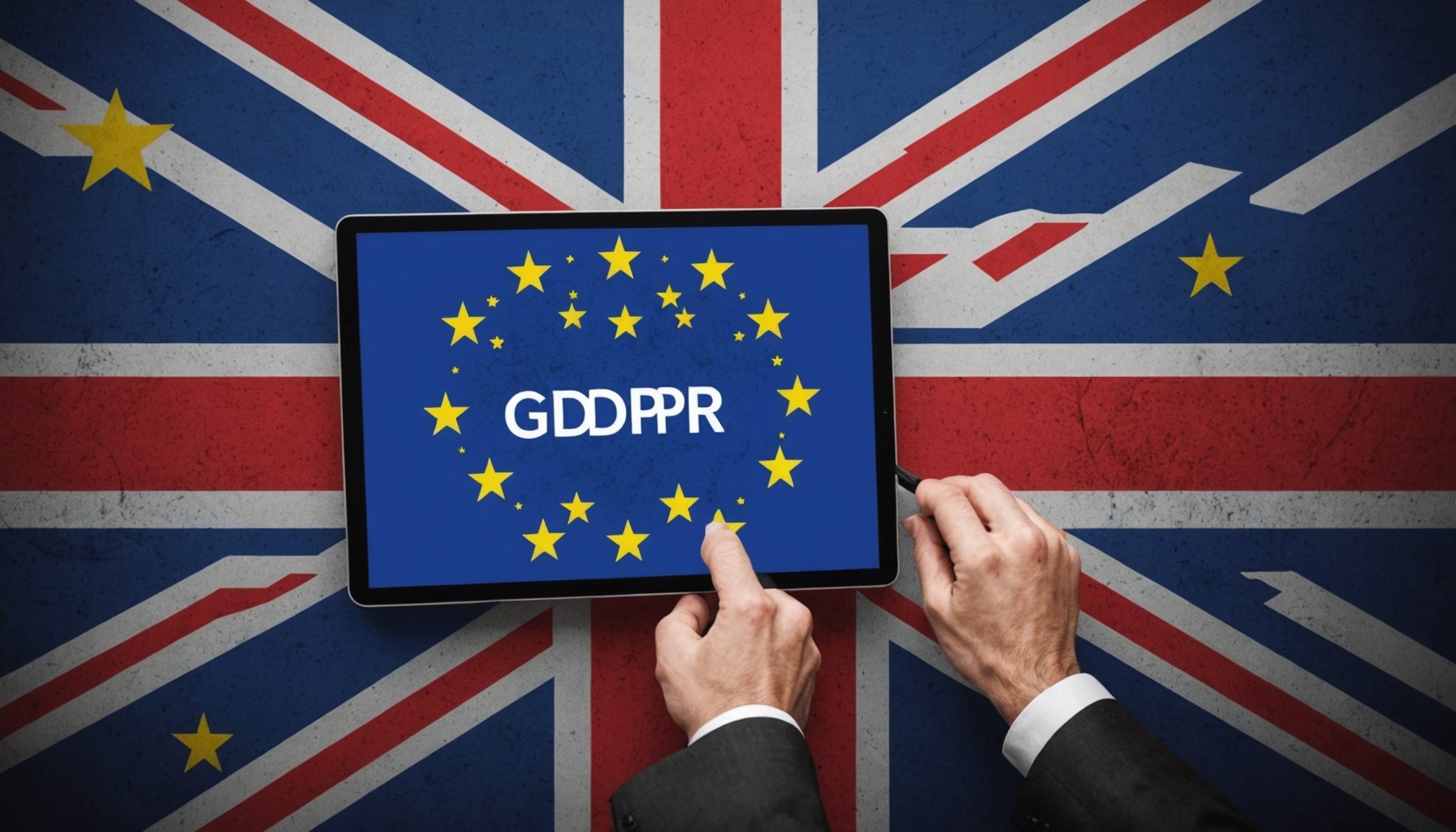Understanding GDPR Compliance Obligations
The General Data Protection Regulation (GDPR) establishes clear principles and requirements for data protection across Europe. For businesses in the UK, GDPR compliance is crucial due to its stringent standards for privacy and data handling. Companies must adhere to specific obligations, such as ensuring transparent data processing, obtaining explicit consent from individuals, and implementing robust security measures.
GDPR compliance obligations extend to maintaining written records of data processing activities, which can be a challenging yet essential task for businesses. This involves detailed documentation that clearly outlines how data is handled, stored, and protected. Such measures are vital to demonstrate accountability and to reassure clients about the data protection measures in place.
This might interest you : Top financial metrics uk managers must focus on for long-term growth
UK companies need to be vigilant in aligning their practices with the evolving data protection laws, as non-compliance can result in significant penalties. Furthermore, the importance of safeguarding personal data is underscored by the trust it fosters among consumers. Prioritising data privacy in business operations is not just about meeting UK regulations; it also enhances brand reputation and customer loyalty by demonstrating a commitment to protecting individuals’ rights and privacy.
Conducting a GDPR Compliance Audit
A compliance audit is a vital step in ensuring your organisation meets GDPR standards. It involves assessing your current data handling practices to identify any gaps or non-compliance issues. To start, performing a data mapping exercise is essential. This involves creating an inventory of all personal data your company processes, noting how it is collected, stored, and used. Data mapping helps in understanding the flow of information and pinpointing areas where protection measures may be lacking.
Also read : Strategies for uk organizations to master leadership succession planning
After mapping, a detailed risk assessment should be conducted. This process evaluates the potential risks associated with your data processing activities. By analysing these risks, you can prioritise actions to mitigate them, ensuring that resources are focused on the most critical areas.
An effective audit requires a structured approach to identify weaknesses and improve processes. Key steps include reviewing data protection policies, ensuring employee awareness, and engaging stakeholders to support compliance efforts. Implementing findings from the audit helps maintain a robust data protection framework in line with GDPR requirements. Regular audits are advisable to address new risks as data protection laws and UK regulations evolve.
Implementing Effective Data Protection Policies
To ensure data protection compliance, businesses must establish comprehensive data protection policies. These policies should be driven by findings from GDPR compliance audits and tailored to the company’s specific needs. A thorough audit identifies gaps in current practices, providing a roadmap for policy development.
Creating Data Protection Policies
Policies should offer clear guidelines on data handling and outline procedures for maintaining data privacy and security. They must reflect the company’s commitment to GDPR standards and UK regulations, emphasizing the importance of protecting personal data within the organisation.
Importance of Documentation
Documentation is crucial for demonstrating compliance and can serve as evidence during audits or inspections. Businesses should meticulously record data processing activities, consent mechanisms, and security measures. This transparency reassures clients and fosters trust in the organisation’s data management practices.
Assigning Accountability
Assigning accountability is essential for effective data protection management. Appointing a dedicated Data Protection Officer (DPO) is often necessary, as they oversee compliance efforts and address queries related to data handling. The DPO’s role includes ensuring that all employees understand their responsibilities and the significance of protecting consumer data, promoting a culture of accountability within the company.
Training and Awareness for Employees
Ensuring high levels of GDPR compliance requires robust employee training programs. These programs are designed to promote compliance awareness by educating staff on data handling best practices and security measures. It’s crucial for employees to understand their responsibilities regarding data protection laws to prevent incidents of non-compliance.
Developing a Training Program
A comprehensive training program should include regular workshops and e-learning modules catered to bolster awareness and equip personnel with the essential knowledge on handling and safeguarding data. This approach aids in embedding a culture of compliance across the company.
Best Practices for Data Handling
Employees should be guided on implementing the best practices in data management, such as minimising data retention periods and ensuring encryption during transit. Understanding these practices fosters a proactive attitude towards data security and enhances overall compliance standards.
Cultivating a Culture of Compliance
Cultivating a compliance-centric environment begins at the organisational core, encouraging open dialogue about privacy concerns and leveraging feedback for continuous improvement. Regularly updating training materials ensures alignment with evolving UK regulations and standards, thereby upholding the company’s commitment to data protection.
Monitoring and Maintaining Compliance
Continuous monitoring of GDPR compliance is essential in adapting to evolving regulatory updates and maintaining robust data protection measures. Regular assessments enable businesses to identify emerging risks and ensure adherence to compliance maintenance standards. Companies should implement a systematic approach to monitor data handling practices, utilising tools designed to track and assess compliance parameters.
Frequent reviews of data protection policies are crucial. This process should involve revisiting and updating procedures to align with any changes in UK regulations and global data protection norms. Staying informed involves subscribing to relevant newsletters or participating in data protection forums, paving the way for organisational adaption to regulatory shifts.
Engaging in continuous staff training reinforces a culture of awareness, ensuring compliance is at the forefront of operational practices. It is also vital to facilitate clear communication channels for reporting potential compliance issues or data breaches, promoting transparency and accountability. Proactively monitoring compliance not only mitigates risks but also strengthens trust with clients by demonstrating an ongoing commitment to their data privacy and security.
Handling Data Breaches and Incident Response
Effectively managing a data breach response is crucial for maintaining regulatory compliance and protecting an organisation’s reputation. Companies must establish a comprehensive incident management plan, which begins with identifying potential vulnerabilities and setting up protocols to address breaches swiftly.
In line with legal obligations, businesses are required to notify both affected individuals and relevant authorities promptly. This notification should include a description of the breach, its likely consequences, and measures taken or proposed to address it. A clear communication strategy ensures transparency and helps retain client trust.
To mitigate future incidents, organisations should conduct post-incident analyses to identify weaknesses, thereby strengthening future compliance efforts. This involves examining the causes and impacts of breaches to implement more robust safeguards.
Key elements of an effective incident response plan include:
- Establishing a response team with defined roles
- Implementing a consistent and transparent notification process
- Learning from incidents to enhance data protection strategies
Being prepared with a structured approach not only aids in immediate crisis management but also reinforces ongoing compliance with UK regulations and data protection laws.
Case Studies of Successful GDPR Compliance
Analysing real-world case studies of UK companies provides valuable insights into effective GDPR compliance. One company that achieved successful compliance implemented a rigorous data protection policy. This entailed assigning a dedicated Data Protection Officer (DPO) to oversee compliance and ensuring all staff received thorough employee training. Employees were educated on data handling and privacy regulations, fostering a culture of compliance awareness.
Another company prioritised data minimisation and regularly conducted compliance audits. They devised a detailed data mapping technique, ensuring complete documentation of data processing activities. This proactive approach enabled them to identify and rectify potential gaps, bolstering their security framework.
Key strategies include:
- Continuous monitoring and compliance maintenance to adapt to regulatory changes.
- Emphasising prompt incident management and robust data breach response plans.
Learning from these firms, businesses can avoid common pitfalls such as inadequate employee training or failure to monitor regulatory updates. By adopting these best practices and continuously improving, UK companies can not only meet but sustain GDPR compliance, enhancing both their reputation and consumer trust.
Final Thoughts on GDPR Compliance Strategies
In an evolving digital landscape, GDPR strategies are crucial for sustaining business integrity. Embracing compliance summary principles bolsters consumer trust, augments brand reputation, and aligns with stringent UK regulations. Companies must internalise a proactive approach—consistently monitor and maintain compliance frameworks to remain agile amid shifts in data protection laws.
While today’s businesses face rigorous standards, the roadmap to successful compliance begins with robust training and awareness programmes. By implementing continual employee training and regularly revisiting business processes, organisations cultivate a resilient compliance culture—key for enduring adherence to GDPR standards.
Looking to the future, data protection trends will increasingly focus on enhanced privacy measures. Staying ahead necessitates adaptability—integrating emergent technologies and regulatory updates into existing compliance blueprints.
Ultimately, these GDPR strategies serve as a powerful guide for building privacy-forward enterprises. By prioritising compliance efforts, companies not only meet legal mandates but also establish themselves as leaders in safeguarding consumer rights, paving the way for sustainable growth and innovation in the data-driven age.











